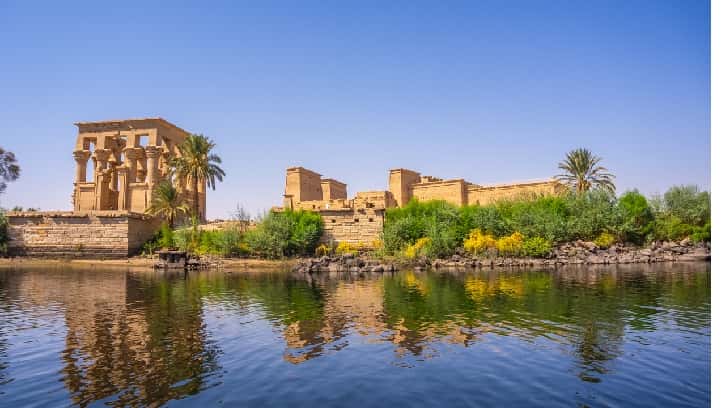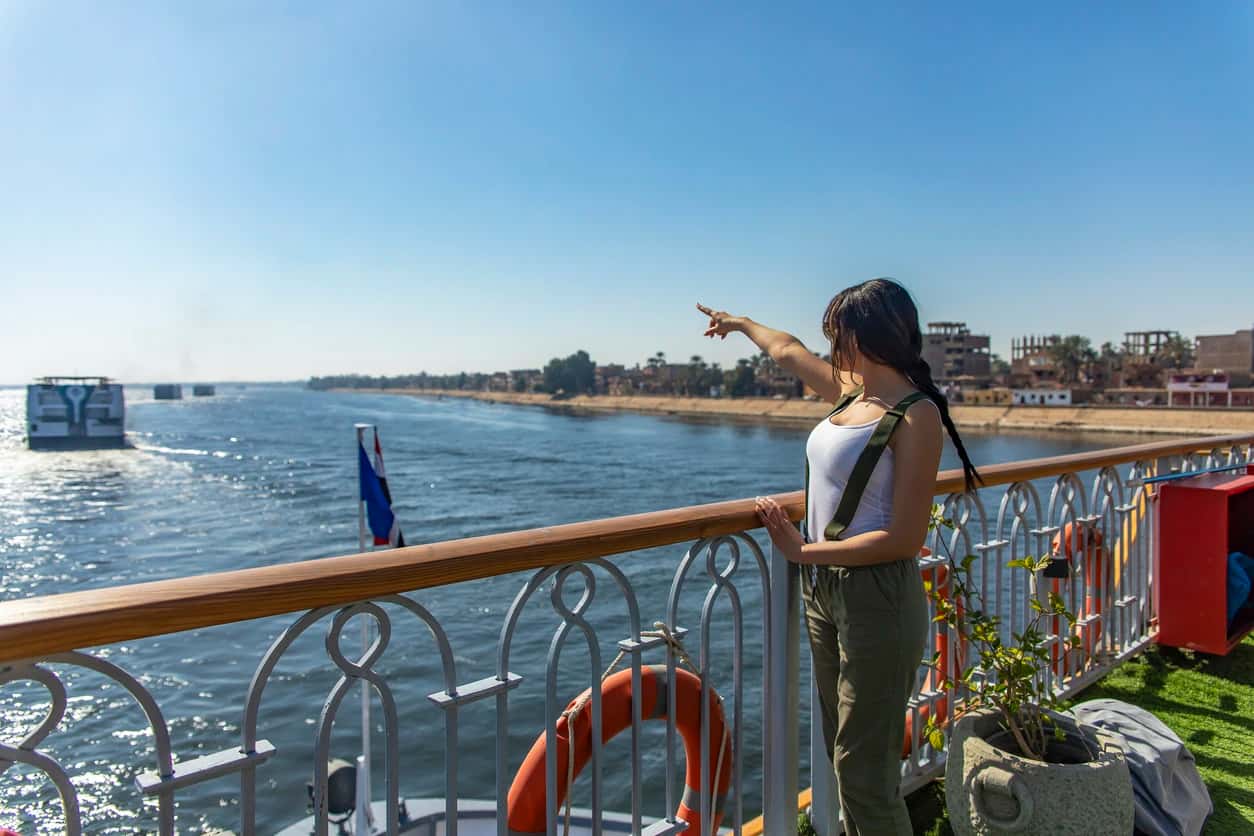
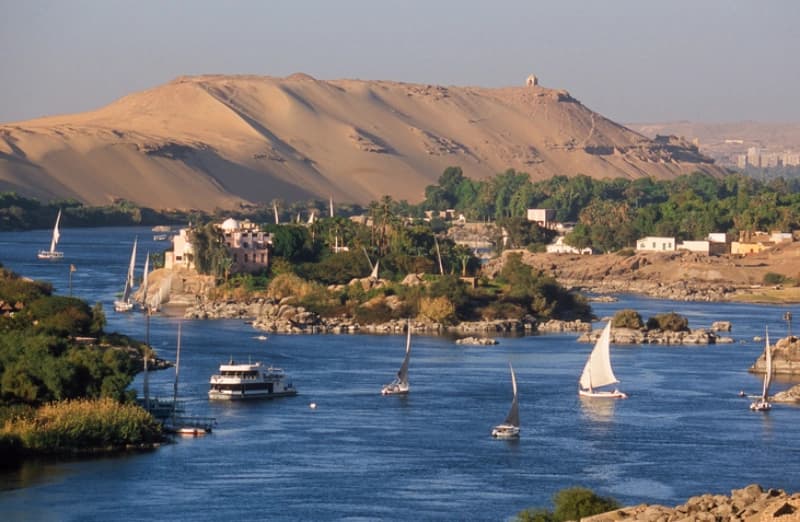
Aswan has the best places to visit that promise a magical journey through Egypt’s history and culture, from its ancient temples to vibrant Nubian villages
Table of contents:
1- When to Visit Aswan?
2- Timeless Ancient Wonders of Aswan
3- Cultural Connections: Life in Aswan
4- Modern Wonders of Aswan
5- Conclusion: The Heart of Egypt
6- FAQs
Welcome to Aswan, where the sun shines for an astounding 4,000 hours each year, making it one of the sunniest places on Earth. With just about 1mm of rain falling annually, you can be sure that your visit to this Egyptian gem will be bathed in sunlight. Aswan is not just about bright skies, though. This charming city is a living canvas of ancient wonders, vibrant culture, and unforgettable landscapes.
The heart of Aswan beats with rich history and cultural beauty. From the awe-inspiring Unfinished Obelisk to the serene Philae Temple, dedicated to the goddess Isis, the city is a treasure trove of ancient marvels. Its bustling Aswan Souq, a kilometer-long market, is the perfect spot to feel the pulse of local life. And don’t forget the traditional Nubian villages, where vibrant homes dot the landscape and offer an authentic glimpse into the rich Nubian heritage
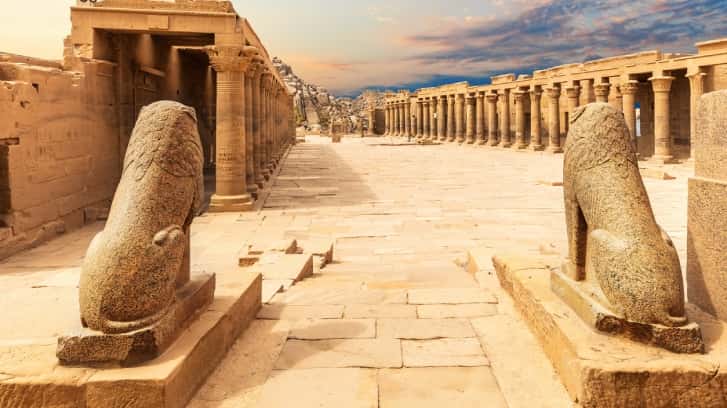
The best time to explore Aswan is between October and April, when the weather is comfortably warm, ranging from 24-29°C (75-85°F). Summer can get incredibly hot, sometimes soaring past 40°C (100°F), so it’s wise to plan your trip for the cooler months. Now, let’s dive into some of the unmissable experiences Aswan has to offer!
Aswan is home to some of Egypt’s most iconic ancient monuments, each one a testament to human achievement and religious devotion.
One of Aswan's crowning jewels, the Philae Temple is a stunning example of ancient Egyptian devotion. In the 1970s, UNESCO led an enormous effort to relocate this sacred site from its original home on Philae Island to the nearby Agilkia Island. This massive operation saw over 40,000 pieces of stone carefully dismantled and reassembled. The temple is dedicated to the goddess Isis, her husband Osiris, and their son Horus, with intricate reliefs telling the famous myth of Isis’s love and devotion.
Ever wondered how the ancient Egyptians cut their massive monuments? The Unfinished Obelisk in Aswan’s northern quarries offers a fascinating glimpse into their stone-working techniques. This would have been the largest obelisk ever created—until it was abandoned when cracks appeared in the granite. Standing at an incredible 1,200 tons, it remains stuck in the bedrock, a silent witness to ancient craftsmanship. Tool marks on the stone and ochre lines show the method used to carve these giants, providing an intriguing insight into the craftsmanship of ancient Egypt.
No visit to Aswan is complete without witnessing the grandeur of Abu Simbel. Located about 300km south of the city, this temple complex is not just an architectural marvel; it’s also home to a rare natural phenomenon. Twice a year, on February 22 and October 22, sunlight aligns perfectly to illuminate the statues of Ramses II, Amun-Re, and Re-Hur-Akhty inside the temple. The solar alignment was once a celebration of Ramses II’s coronation and birthday. The temple itself was relocated during the 1960s to save it from the rising waters of Lake Nasser—an engineering feat in its own right.
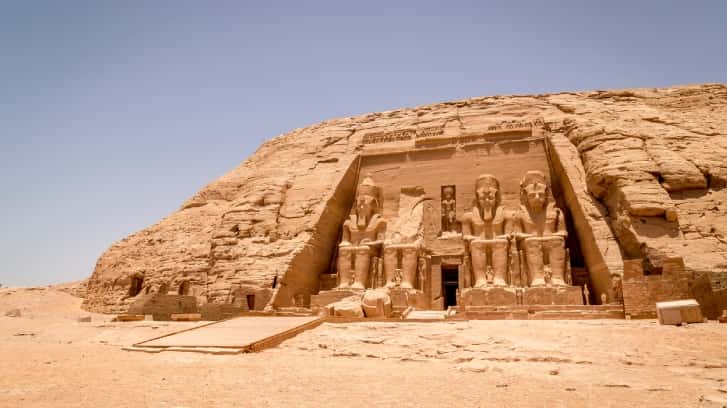
While Aswan is a treasure trove of ancient monuments, its true spirit comes alive through its people, traditions, and local experiences.
A boat ride along the Nile offers a peaceful escape to the colorful Nubian villages on Elephantine Island. Here, narrow alleys lead to vibrant houses, and local families invite you into their homes for a cup of traditional tea. These villages are brimming with culture, from the local art and handicrafts to the ever-present hum of daily life. It’s a chance to immerse yourself in the real essence of Nubian culture, where hospitality and warmth take center stage.
The Nubian Museum is a must-see for anyone interested in learning more about the region’s rich heritage. With a collection spanning 3,000 artifacts, it offers a deep dive into Nubian history, art, and culture. The museum’s garden is also a place to explore, with ancient inscriptions and a reconstructed Nubian house that gives visitors a peek into daily life long ago.
Aswan Souq, also known as Sharia el Souk, is where the city’s lively spirit really comes to life. This bustling market offers everything from aromatic spices to handcrafted pottery and traditional Nubian jewelry. The scent of frankincense wafts through the air as the sun sets, creating a magical atmosphere as you wander the narrow lanes. It's not just about shopping—it's about experiencing the vibrant energy of the city and its people.
When you’re ready to slow down and enjoy Aswan’s natural beauty, there’s no better way than to embrace the peaceful surroundings.
The best way to experience the Nile’s tranquility is by sailing on a traditional felucca. These wooden sailboats allow you to glide along the river, taking in views of the lush greenery, ancient monuments, and local life. Whether it's a quick day trip or an overnight adventure, the slow pace of the felucca offers an intimate connection with the river and its surroundings.
Kitchener's Island, a verdant paradise located on the Nile, is a place to unwind amid exotic plants and beautiful birdlife. From royal palms to rare medicinal herbs, the island’s gardens are a testament to Lord Horatio Kitchener’s love of botany. The island is also home to a variety of bird species, making it a birdwatcher’s dream. The best time to visit is late afternoon, when the soft light makes the gardens even more enchanting.
For those who want a taste of adventure, a camel ride to the St. Simeon Monastery is a must. This 7th-century monastery offers panoramic views of the desert and the Nile Valley, making it an incredibly photo-worthy spot. The monastery’s simple yet striking architecture is adorned with ancient frescoes, offering a unique blend of history and stunning natural scenery.
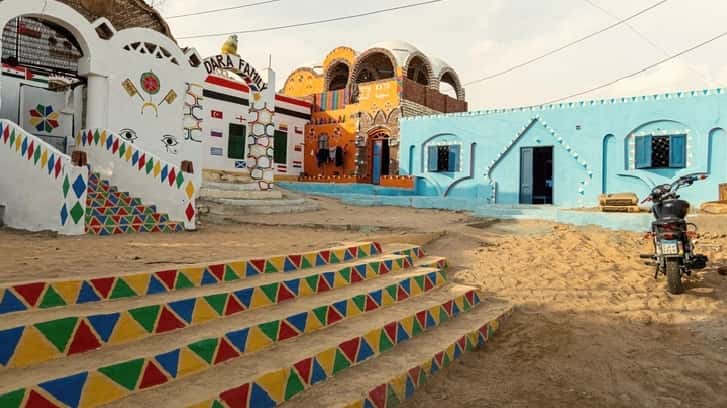
Aswan also boasts modern achievements, like the Aswan High Dam, which has had a monumental impact on Egypt’s development.
The Aswan High Dam is a testament to Egypt’s engineering prowess. Completed in 1970, this massive structure regulates the Nile’s flow, provides electricity, and revolutionized irrigation in the region. While its construction displaced thousands, the dam’s benefits are far-reaching, making it one of the most important modern wonders of Egypt.
Hidden in the cliffs on the west bank of the Nile, the Tombs of the Nobles offer a quiet, contemplative escape. These ancient tombs, decorated with vivid wall paintings and hieroglyphs, are the final resting places of Egypt’s elite. A hike to the tombs offers spectacular views of Aswan and the surrounding desert.
No trip to Aswan is complete without dining at the legendary Old Cataract Hotel. Famous for its luxurious atmosphere and rich history, this iconic hotel offers a dining experience you won’t soon forget. The 1902 Restaurant serves up French-inspired dishes in a setting that’s as beautiful as the food itself. Enjoy a meal while taking in the stunning views of the Nile and Elephantine Island—a perfect way to cap off your Aswan adventure.
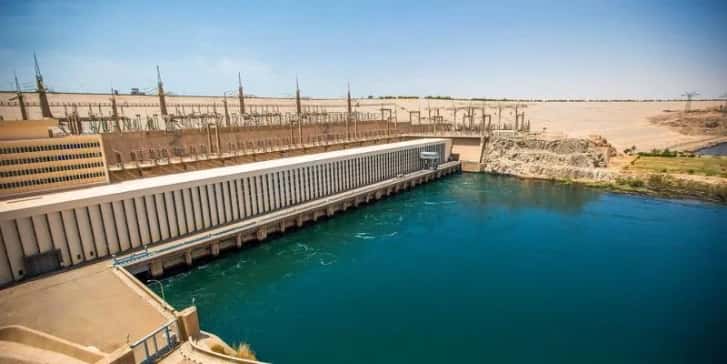
Aswan is a city that effortlessly blends ancient history with natural beauty, cultural experiences with modern marvels. Whether you're marveling at the grandeur of Abu Simbel, relaxing on a felucca ride, or exploring vibrant Nubian villages, Aswan offers an experience that’s as rich as its history. With its warm sun, timeless monuments, and welcoming people, this sun-kissed city is sure to leave you with memories that will last a lifetime.
The ideal time to visit Aswan is from October to April, with pleasant temperatures averaging 24-29°C (75-85°F).
The Philae Temple, Unfinished Obelisk, Abu Simbel temples, Nubian villages, and Aswan High Dam are all essential stops.
A felucca ride on the Nile is the most peaceful and authentic way to experience the river's beauty.
Visiting a Nubian village and shopping at Aswan Souq offer excellent opportunities to connect with local traditions.
Kitchener’s Island’s botanical gardens and camel rides to St. Simeon Monastery are top picks for nature lovers.
Aswan is full of incredible places to visit. Discover the heart of Egypt on your next adventure.
